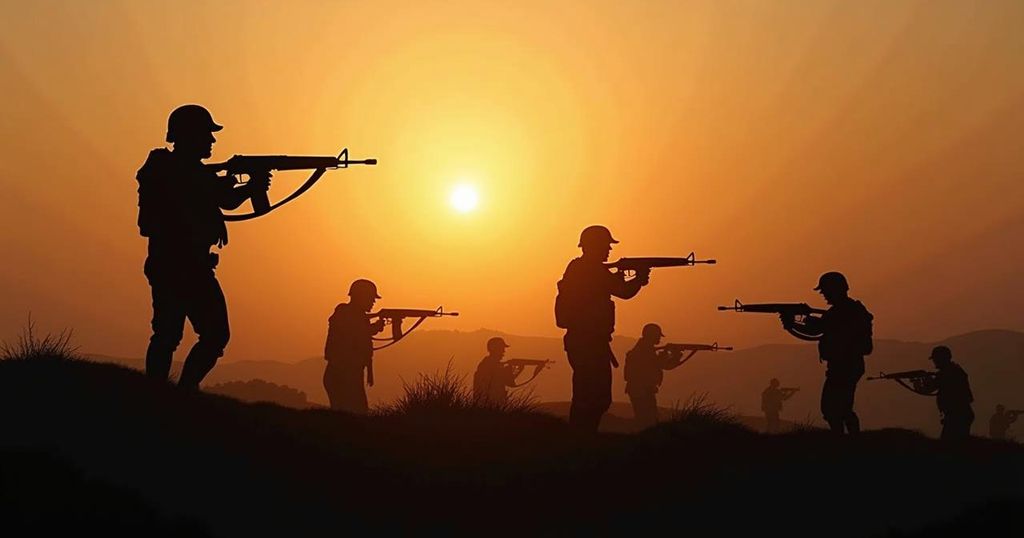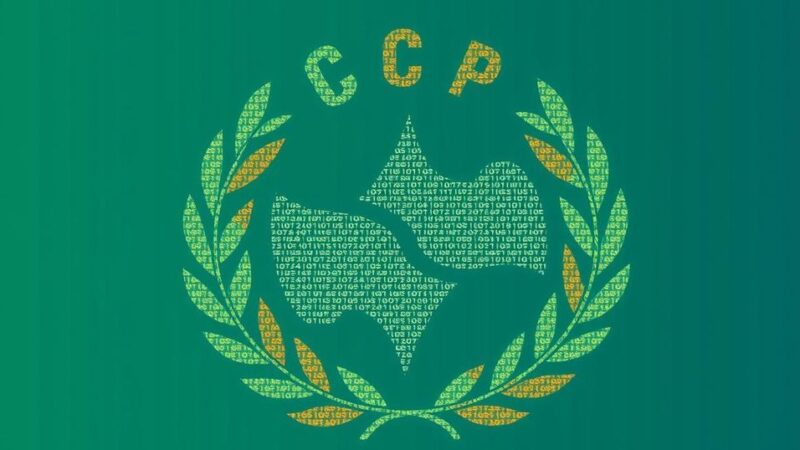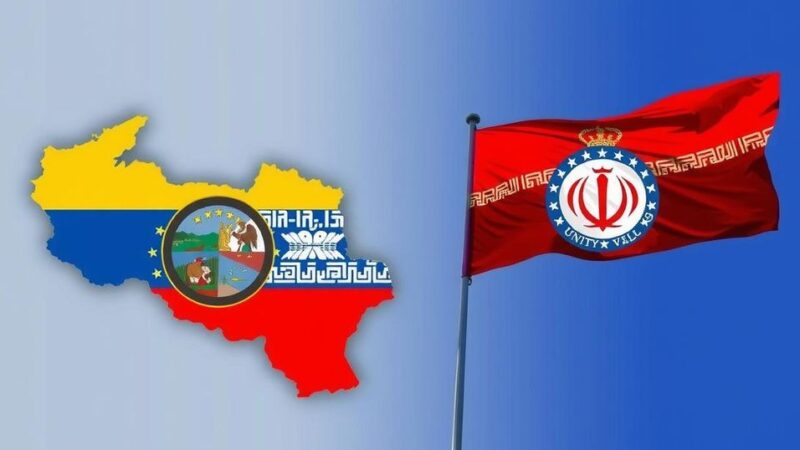The article discusses the intensified conflict between Israel and Hezbollah amid the ongoing war with Hamas in Gaza as it approaches its second anniversary. Both sides have engaged in significant cross-border strikes, leading to high casualties and humanitarian crises in Gaza and Lebanon. The complex historical backdrop of the conflict further complicates the situation, showcasing the dire need for international intervention and resolution.
The ongoing conflict between Israel and Hezbollah has intensified, with both sides engaging in heavy cross-border strikes as the Gaza war approaches its second anniversary. Hezbollah conducted attacks on Israeli targets, claiming to express solidarity with the Palestinian people on the anniversary of the October 7, 2023, Hamas attacks, which initiated Israel’s military offensive in Gaza. In response, Israel’s military reported that it had targeted over 70 Hezbollah locations in the past day, including key assets in Beirut and a weapons production facility. The broader context reveals that the war, now exceeding a year, has escalated tensions in the Middle East significantly. The conflict began on October 7, 2023, when Hamas launched a massive assault on Israel, resulting in approximately 1,200 Israeli casualties and numerous civilian hostages. In retaliation, Israel commenced a ground invasion in Gaza, causing one of the largest displacements in the region since 1948. This violent escalation further includes the assassination of Hamas leader Ismail Haniyeh in July 2024, which Hamas attributed to Israeli actions. Hezbollah’s involvement has contributed to escalating hostilities, prompting an Israeli invasion of southern Lebanon and increased airstrikes, which have resulted in over 1,400 Lebanese deaths, including that of Hezbollah leader Hasan Nasrallah. The Israel-Lebanon border, renowned for its historical conflicts, remains a flashpoint in the region’s turbulence. In the Gaza Strip, the humanitarian crisis has reached alarming proportions, with tens of thousands of casualties and at least half the population experiencing dire conditions likened to famine. Despite international calls for increased humanitarian aid, Israel has maintained strict limitations on aid influx, intensifying the plight of civilians in Gaza. The United States continues to support Israel amidst political friction between Israeli Prime Minister Benjamin Netanyahu and certain U.S. leaders, including President Biden. This support manifests as substantial military aid and diplomatic shielding at the United Nations concerning cease-fire efforts. The underlying historical tensions of the Israeli-Palestinian conflict, rooted deeply in events predating Israel’s establishment in 1948, exacerbate the current situation. The continual exchange of hostilities underscores the complexity and length of this prolonged conflict.
The ongoing Israel-Gaza war reflects a culmination of historical grievances and escalating violence in the region. It began on October 7, 2023, with a large-scale attack by Hamas, leading to a significant military response from Israel. The conflict includes not only the immediate strife in Gaza but also incursions and hostilities involving Hezbollah in Lebanon, which is supported by Iran. This context is critical for understanding the geopolitical ramifications of the conflict, as well as the deeply rooted historical tensions that have shaped current hostilities. The humanitarian impact on civilians in both Gaza and Lebanon presents a severe crisis amid global calls for intervention and relief efforts.
In conclusion, the conflict between Israel and Hezbollah has escalated, marked by reciprocal strikes and significant loss of life on both sides as the Gaza conflict enters its second year. The intricate history of hostilities, along with the dire humanitarian situation in Gaza and the Lebanon border crisis, highlights the complexities of the Israel-Palestine struggle. The international community’s involvement, particularly that of the United States, complicates the dynamics further, emphasizing the necessity for an urgent and effective approach to cease hostilities and address humanitarian needs.
Original Source: www.washingtonpost.com






